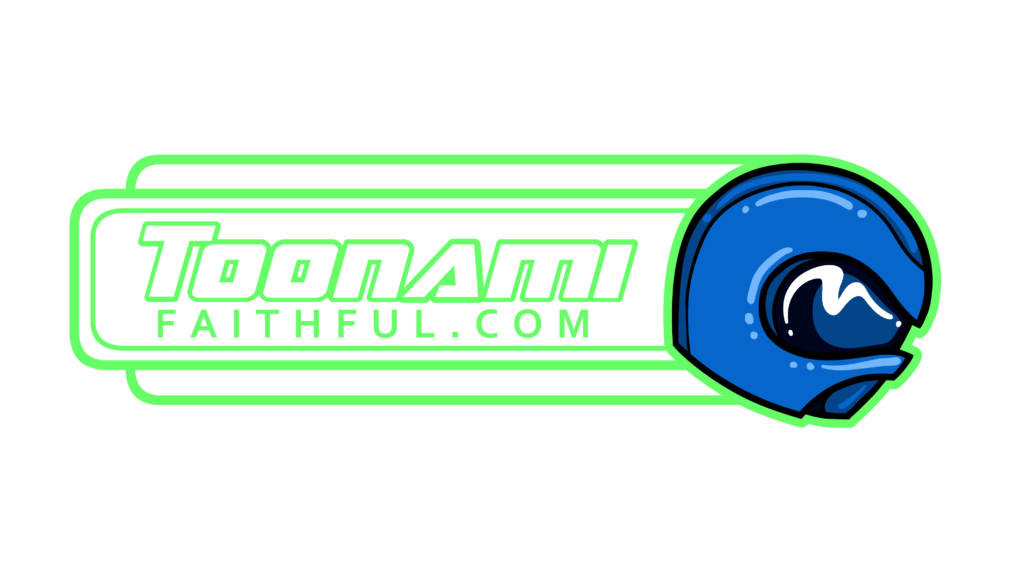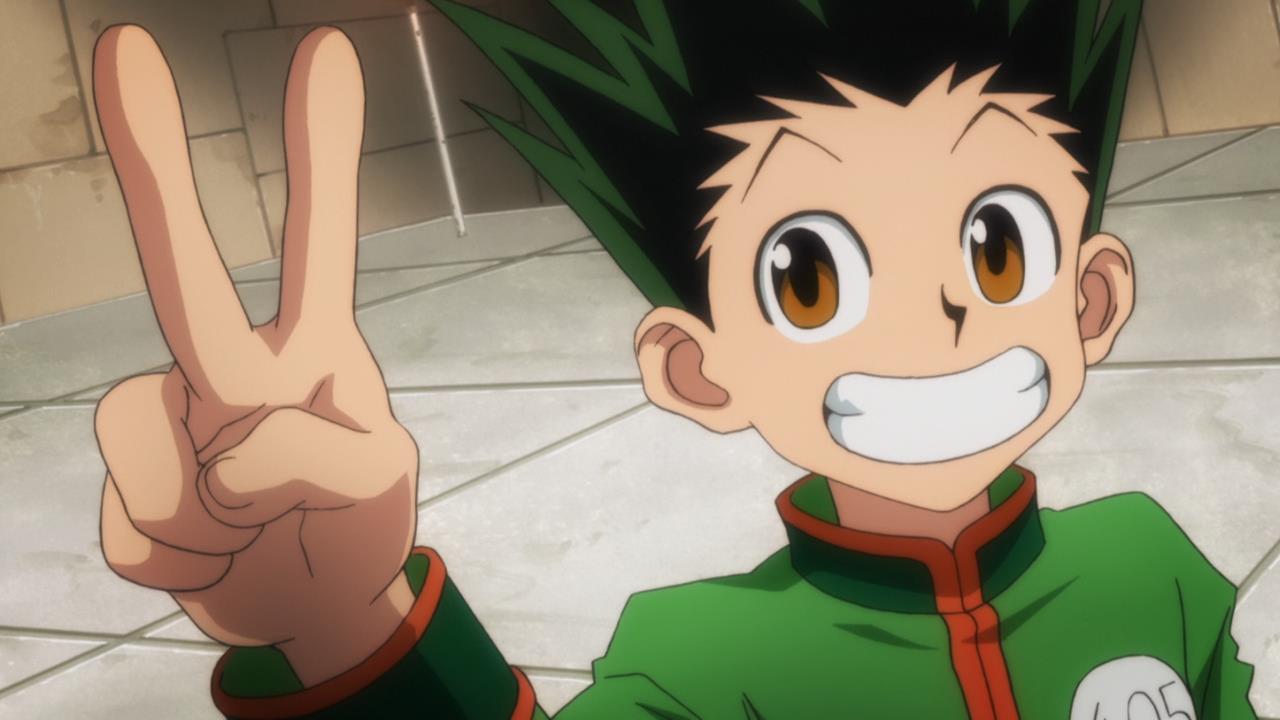After three long years, Hunter x Hunter has finally ended its run on Toonami. For myself, seeing the series leave the block is a bittersweet feeling. When Toonami came back in 2012, Hunter x Hunter was at the top of my list of anime that I wanted to see on the block, so for it to have received a full run fills me with joy. That being said, we’re losing a fantastic series that truly stands out in the battle-shonen genre, leaving a huge void in the process. So with the adventures of Gon and his friends now in the past, let’s look at the history of Hunter x Hunter and what has made it so memorable.
Thanks for going on Gon's journey with me guys. It's been an amazing ride. Hope you had as much fun as I had. pic.twitter.com/oakuxQh40m
— Erica Mendez (@tsunderica) June 23, 2019
Hunter x Hunter started as a manga by Yoshihiro Togashi in Weekly Shonen Jump in March 1998. By this point in his career, Togashi was no stranger to manga industry, having already published three series within the pages of Shonen Jump, and achieving massive success with his action title Yu Yu Hakusho, another Toonami series. In an interview with Jump Giga in 2016, Togashi mentioned that when conceiving Hunter x Hunter, he wanted to explore new territory as a writer. Since his previous titles had taken place in worlds based on reality, he decided that his next series should have a setting closer to fantasy. Togashi’s choice of doing a battle manga again, like with Yu Yu Hakusho, also came from his past publication experiences. In one of his interviews for the 50th Anniversary Shonen Jump Exhibition Catalog, Togashi noticed how most of Weekly Shonen Jump’s highly acclaimed series were either sports or battle titles during Yu Yu Hakusho’s run. Thus, he felt it made sense to create once again a battle manga to help guarantee his series’ lifespan. Just as Togashi had hoped, his efforts had paid off and Hunter x Hunter became a hit. The manga would receive a T.V. anime adaption by Nippon Animation in Fall 1999, which would be followed up by three sequel OVA series from 2002 to 2004. Eventually, the series was greenlit for an entirely new adaption by Madhouse that would air in Fall 2011, which found its way to Toonami in 2016. The sheer longevity of Hunter x Hunter as a franchise goes to show how it continues to capture audiences even two decades since its inception.
One of Hunter x Hunter’s immediate strong points is its core cast of characters. Togashi has mentioned in the past that he wanted to make Gon a “good” kid but also “crazy” at the same time. While Gon is a good person at heart, he does not shy away from facing the unknown and is willing to risk his life against impossible odds. This “crazy” factor of Gon’s is what makes him stand out from the protagonist archetype that’s commonly associated with traditional battle-shonen, crafting a unique identity for Gon in the process.
Thank you for letting me be a part of this series 🙏🏻😭 I'll never forget the experience!!
— Erika Harlacher-Stone (@ErikaHarlacher) June 23, 2019
Togashi’s use of subversive traits applies not only to Gon but numerous other characters as well. Both Killua and Kurapika are shown to have caring personalities but are capable of displaying brutality towards others under the proper circumstances. Meanwhile, Leorio serves as the level-headed member of the main four, but can easily succumb to his impulses, especially when frustrated. These defining traits conflict with each other, but that conflict is what makes these characters so compelling. We see this especially with Kurapika in the Yorknew City arc, where he is forced to weigh his desire for revenge against his feelings towards his friends. When Kurapika trades Chrollo for Gon and Killua as hostages at the end of the arc, Kurapika goes against the vengeful desires that have plagued him throughout the story and chooses to preserve the happiness that he has found through his present friendships. Togashi’s choice to develop Hunter x Hunter’s cast through these struggles helps imbue a sense of humanity within the series, making fans want to see these characters’ stories through to their conclusion.
Another aspect of Hunter x Hunter that I love is how it will change the status quo at every opportunity. When interviewed for Jump Ryu in 2016, Togashi mentioned how he has tried to change his storytelling style for each arc of Hunter x Hunter to keep readers surprised. Whether it’s Heaven’s Arena, Greed Island, or the Chimera Ant arc, no two storylines are precisely alike. I feel that this helped keep viewers interested in the series on Toonami because just as we would get used to a specific story arc’s format, the next arc would introduce new ideas that would change the direction of the show. The most drastic of these changes can be seen in the Green Island arc, where Togashi creates an entirely new setting based on different rules than those Hunter x Hunter’s primary environment. Hunter x Hunter is never hesitant to stray from the norm, and that’s what allows to continue to craft such unique narratives within its world.
That's all for #HunterXHunter on Toonami! I was overjoyed when @VIZMedia announced it to premiere on Toonami years ago. It's been an amazing ride especially to see more fans come to and enjoy the show. Thank you to everyone that worked on and supported HxH! Until we meet again! pic.twitter.com/DsbeMo2f7R
— Hunter❌Hunter (@HxHSource) June 23, 2019
Its display of action also supports the series’ ability to change up its structure. While the early conflicts in the series are depicted as straightforward confrontations, they gradually become more complex and strategic in focus. With the introduction of Nen, Togashi had created a combat environment with endless possibilities, and it helps facilitate the variety of techniques and skills that our heroes come across. The fight against Youpi in the Chimera Ant arc is a perfect encapsulation of this, as we see Knuckle use his nen power A.P.R to indirectly chip away at Youpi’s strength through a combination of hit-and-run tactics. This fight constantly keeps viewers on their toes, while ramping up the intensity as Knuckle and his comrades get closer to their goal of defeating Youpi. Togashi has always had a knack for writing non-traditional conflicts, but this fight continues to resonate with me even years after reading it in the manga and subsequently watching it in the anime because how much it strays from the traditional elements action storytelling. Knuckle is fully aware that Youpi is stronger than him, but he also knows that strength isn’t the sole determinant of who wins a fight, instead of using his unique nen abilities and those of his friends to his advantage. The fight is a great fusion physical combat and mental strategy, a combination that very few battle-shounen series has managed to do as well as Hunter x Hunter.
When I think back on my memories of Hunter x Hunter, the biggest thing that sticks with me are the messages that series conveys throughout its run. One of my favorite arcs in all of anime and manga is Yu Yu Hakusho’s Chapter Black arc, where Togashi placed a significant focus on the moral ambiguity of society itself and the flaws of binary thinking. Hunter x Hunter takes the ideas that Togashi crafted within that arc and spreads it across the entire series. Throughout Hunter x Hunter, we see characters that can’t be defined into the mere categories of “good” or “evil.” Instead, many within Hunter x Hunter’s cast walk a thin line between both these definitions. This line is especially evident within the Chimera Ant arc, where we see the ants gradually gain humane sensibilities but also commit atrocities that place them in the wrong in the eyes of humanity. When Gon is forced to confront this reality by witnessing Pitou save Komugi’s life, we see that even he is capable from straying from a morally correct path, willing to let another human being die for the sake of his revenge. We also see the reverse happen with Meruem throughout the arc, starting as a monster obsessed with gaining further power to a being who seeks a human connection on his deathbed. The thematic developments for these characters not only subvert our expectations but also urge viewers to look at Hunter x Hunter’s world and core ideology from a different perspective. Hunter x Hunter wants you to think about you’re watching, and I think that has irreplaceable value.
It’s hard to say what Hunter x Hunter’s future will be concerning Toonami since, outside of possible reruns, it is hinged on more anime content being produced. The next major story arc of the series has yet to finish in the manga, and given Togashi’s irregular publication schedule to maintain his health; it’s difficult to determine when it will eventually reach its conclusion. Even so, the anime’s stopping point is still a fitting end for the time being. Togashi has noted that Hunter x Hunter “ended once” with the conclusion of the Chairman Election arc, and that’s not far from the truth. Gon’s story to find his father has been completed and even Killua has found a new purpose in his life through Alluka. That being said, there are still several storylines that have yet to be addressed within the series. Kurapika’s quest for the eyes of his clan, the whereabouts of Chrollo, the mysterious Gyro, and the ominous Dark Continent are all things that are constantly on the minds of fans. While I recommend continuing the series with the manga so that you can see some of these mysteries addressed as soon as possible, I do hope that the anime returns one day so that a wider audience can experience them as well. For Toonami, losing Hunter x Hunter will be the passing of a consistent pillar of enjoyment every week. We will certainly get new shows that will excite viewers, but I think it will be tough to fill the void that the series leaves. I will fondly remember my time watching this fantastic series on Toonami, and I hope that other people do as well. Until we meet again Hunter x Hunter, and keep hunting for your dream!
It's been so incredible sharing this episode of #HunterxHunter with you all on #Toonami! Big thanks to @tsunderica, @CristinaVee, @erikaharlacher, @matthewmercer, @bangzoom, and the rest of the staff and cast for making this so special! 💖
— VIZ (@VIZMedia) June 23, 2019
VLord is an editorial writer for toonamifaithful.com and contributor to All-Comic.com. Feel free to follow VLord on Twitter @VLordGTZ

